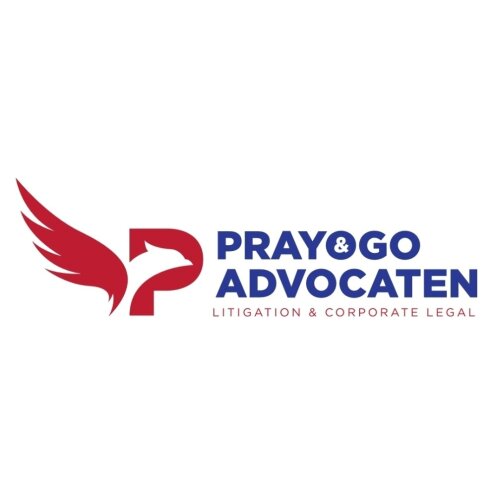Best Public-Private Partnerships (PPP) Lawyers in Tangerang
Share your needs with us, get contacted by law firms.
Free. Takes 2 min.
List of the best lawyers in Tangerang, Indonesia
About Public-Private Partnerships (PPP) Law in Tangerang, Indonesia
Public-Private Partnerships (PPP) are collaborative agreements between government entities and private sector companies aimed at developing and managing infrastructure or public services. In Tangerang, Indonesia, PPPs play a crucial role in advancing urban and regional development, particularly in sectors such as transportation, sanitation, energy, education, and healthcare. The national regulatory framework for PPPs is largely shaped by various laws and regulations, but local government policies in Tangerang are also instrumental in managing the practical aspects and compliance requirements of these partnerships.
Why You May Need a Lawyer
Engaging in a PPP in Tangerang involves complex legal agreements, strict compliance requirements, and negotiation with government agencies. You may need a lawyer if you are:
- A private company considering investing in infrastructure or public services in Tangerang
- A government entity seeking to initiate a PPP project
- An investor or financer providing capital for a PPP arrangement
- Facing disputes or contract interpretation issues in an ongoing PPP project
- Needing due diligence on land acquisition, licenses, permits, or environmental compliance
- Requiring guidance on tender processes, project structuring, or risk allocation
- Dealing with tax and financial structuring in cross border PPP investments
- Seeking advice on exit rights, termination, or project transfer matters
Local Laws Overview
The legal framework for Public-Private Partnerships in Tangerang is primarily governed by national laws, such as Presidential Regulation Number 38 Year 2015 concerning Cooperation Between Government and Business Entities in Infrastructure Provision (Perpres 38/2015) and related technical regulations. Local government regulations and policies in Tangerang provide additional guidelines and procedures for initiating and implementing PPP projects within the city or regency.
Key aspects of PPP regulations in Tangerang include:
- Eligibility and selection criteria for private sector partners
- Government guarantees, support, and incentives for PPP projects
- Procurement procedures and public tender requirements
- Land acquisition processes and permits specific to Tangerang’s administrative region
- Environmental impact assessments and local licensing compliance
- Revenue sharing, tariffs, and user charges subject to local authority regulation
- Dispute resolution mechanisms, including local courts and arbitration options
Frequently Asked Questions
What types of projects can be developed under PPP in Tangerang?
PPP projects in Tangerang typically cover infrastructure and public services such as roads, water supply, waste management, energy facilities, hospitals, public housing, and schools.
Which government agencies are involved in PPPs in Tangerang?
Local government offices (Pemda), the Regional Development Planning Agency (Bappeda), and specific project-related agencies often oversee PPP project planning, approval, and supervision.
What are the basic steps to initiate a PPP project in Tangerang?
PPP initiation generally involves project identification, feasibility study, preparation of tender documents, public tendering or direct appointment depending on the project, and contract negotiation before implementation.
Is foreign investment allowed in PPP projects in Tangerang?
Yes, foreign investors can participate in PPP projects subject to Indonesia’s negative investment list and local ownership restrictions, depending on the project sector.
What legal agreements are commonly used in PPP arrangements?
Key agreements may include a PPP contract or concession agreement, land use permits, financing contracts, operation and maintenance contracts, and government support agreements.
How is project risk allocated in PPP contracts?
Risks are allocated based on negotiation and sector norms, covering construction, operational, financial, legal, and political risks. Legal advisors help ensure balanced risk sharing.
What dispute resolution mechanisms are available for PPP projects in Tangerang?
Parties can choose local courts, arbitration, or alternative dispute resolution mechanisms depending on the contract terms and legal requirements.
Are there special incentives for PPP projects in Tangerang?
Eligible PPP projects may receive government support, fiscal incentives, or guarantees provided under national or local policies to encourage investment.
What are the key compliance requirements for private sector participants?
Private partners must comply with procurement rules, environmental and technical standards, licensing processes, and reporting requirements under local and national legislation.
How long do PPP contracts usually last in Tangerang?
Contract duration varies by project, ranging from several years to multi-decade agreements, often aligned with the nature and scale of the infrastructure project.
Additional Resources
For further guidance and support, you may contact or consult with:
- Bappeda Kota Tangerang or Bappeda Kabupaten Tangerang for project planning and approvals
- Local Investment and One Stop Service Agency (Dinas Penanaman Modal dan Pelayanan Terpadu Satu Pintu)
- Ministry of National Development Planning (Bappenas) for national PPP policies and opportunities
- Indonesian Chamber of Commerce (KADIN) for private sector resources
- Professional law firms with experience in infrastructure and PPP law in Indonesia
- Financial and legal consultants specializing in PPP arrangements
Next Steps
If you are considering participating in or initiating a PPP project in Tangerang, it is advisable to:
- Consult with a qualified lawyer familiar with PPP laws and regulations in Indonesia and Tangerang specifically
- Engage professional advisors early in the project planning phase to assess legal, financial, and technical feasibility
- Contact the relevant local government offices for guidance on procedures and documentation
- Prepare all necessary documents for due diligence, tendering, and compliance
- Negotiate contractual terms with the assistance of legal counsel to ensure protection of your rights and interests
Lawzana helps you find the best lawyers and law firms in Tangerang through a curated and pre-screened list of qualified legal professionals. Our platform offers rankings and detailed profiles of attorneys and law firms, allowing you to compare based on practice areas, including Public-Private Partnerships (PPP), experience, and client feedback.
Each profile includes a description of the firm's areas of practice, client reviews, team members and partners, year of establishment, spoken languages, office locations, contact information, social media presence, and any published articles or resources. Most firms on our platform speak English and are experienced in both local and international legal matters.
Get a quote from top-rated law firms in Tangerang, Indonesia — quickly, securely, and without unnecessary hassle.
Disclaimer:
The information provided on this page is for general informational purposes only and does not constitute legal advice. While we strive to ensure the accuracy and relevance of the content, legal information may change over time, and interpretations of the law can vary. You should always consult with a qualified legal professional for advice specific to your situation.
We disclaim all liability for actions taken or not taken based on the content of this page. If you believe any information is incorrect or outdated, please contact us, and we will review and update it where appropriate.









